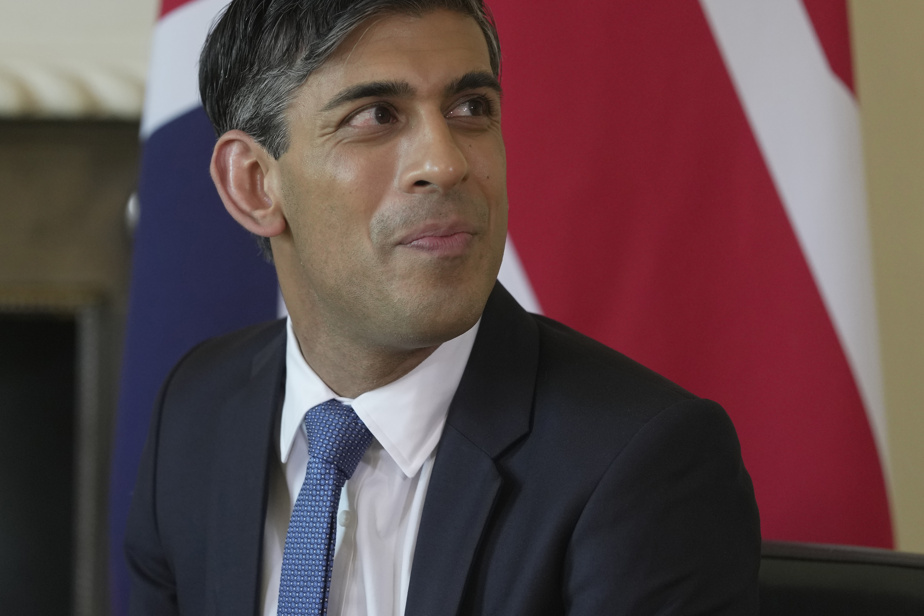(LONDON) Britain’s Conservatives have suffered major losses in local elections in England, a bad omen for Prime Minister Rishi Sunak and his majority in Parliament ahead of the next general election.
It was the first test at the ballot box for the head of government who arrived in Downing Street in October and the results, still partial, are not good.
In the aftermath of Thursday’s vote to renew 8,000 seats in 230 city councils, the Tories, in power for 13 years, suffered significant defeats in traditional bastions of the British right.
“It’s always disappointing for these hard-working Conservative advisers,” Rishi Sunak reacted on Sky News as soon as the first results were announced in the early morning, repeating his promises at the national level concerning the economy, health or the fight against illegal immigration.
After counting ballots in 151 of the 230 local councils at stake this year, the Conservatives have lost 573 elected officials, according to the BBC.
Labor wins 302, but is far from alone in benefiting from distrust of the majority. The Liberal Democrats (centrists) recorded a net gain of 212 seats, the Green party ecologists won 136 seats.
The Greens also won a local council for the first time in their history by winning the majority of seats in Mid Suffolk (east).
The Labor Party, which hopes to succeed in bringing its leader Keir Starmer into Downing Street after the next general elections due by the end of next year, for example won the local council of Stoke-on- Trent (north), Brexit “capital” which voted 69% for leaving the European Union in 2016, and claimed that of Dover, the Channel port traditionally on the right.
“We have fantastic results across the country,” Keir Starmer told supporters in Medway (southeast) where Labor took over the local council from the Tories.
According to BBC national projections, 35% of the votes go to Labor against just 26% for the Conservatives and 20% for the Lib-Dems.
“We are exceeding all expectations,” Liberal Democrat leader Ed Davey said, welcoming the blow to the conservative blue wall.
The Conservatives collapsed in the polls over the political scandals that marred the Boris Johnson era (2019-2022) and then under the effect of the financial turmoil caused by Liz Truss’ 49 days in Downing Street last year. The social crisis caused by inflation has aggravated their situation.
The rise to power of ex-banker and finance minister Rishi Sunak in October brought a semblance of stability, with political successes such as an agreement with Brussels on the post-Brexit status of Northern Ireland.
But distrust persists in public opinion, confirmed by these local elections, even if Labor’s nine-point lead remains too limited to ensure a comfortable victory next year in the legislative elections.
Before coming to power in 1997 and 2010 respectively, Labor Tony Blair and Conservative David Cameron both had successes with double-digit leads in the local elections that preceded the general elections.
These elections were marked by an unprecedented requirement for voters: that of presenting an identity document in order to be able to vote.
This change is creating a stir and has been described by its detractors as a maneuver to exclude certain voters, in particular young people and the working classes, as the French-style national identity card does not exist.
Where the Electoral Reform Society, opposed to this new obligation, said on Thursday that it had seen “countless examples” of voters prevented from voting, the Association of Electoral Administrators, which brings together local poll administrators, assured that the vote was going “as well as usual”.

